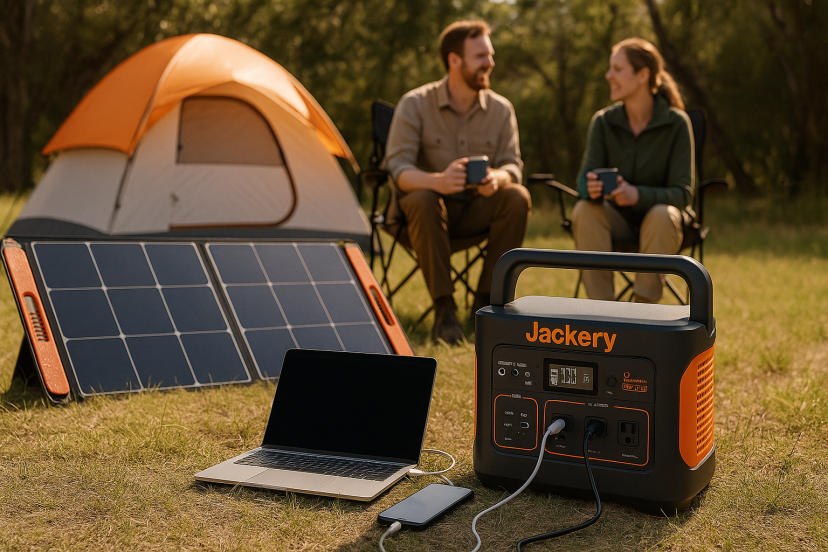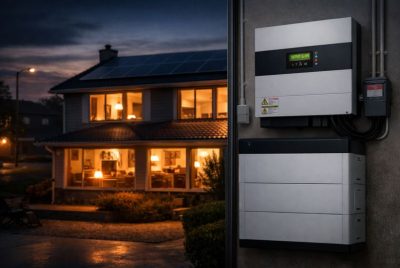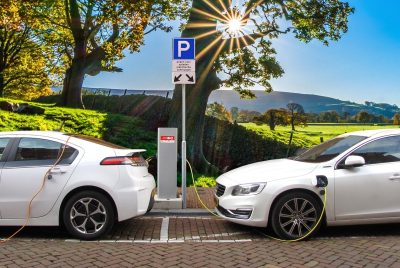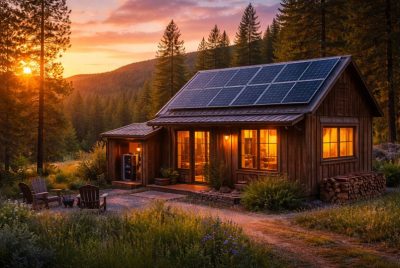7 Benefits Of Hybrid Solar Systems
Imagine this: you finally decide to invest in solar, and the first thing people ask is, “Are you going off-grid or staying connected?” It feels like you’re stuck choosing between freedom and reliability. What if you could enjoy the advantages of both at the same time? That’s exactly where Hybrid Solar Systems shine.
They give you the best of both worlds—energy independence with grid backup—while saving money, reducing stress, and offering long-term sustainability. In this article, we’ll explore the 7 biggest benefits of hybrid solar systems, review some highly rated Amazon products, and dive into real-world research that proves why this choice is smarter than ever.
1. Energy Independence Without Full Disconnection
Hybrid systems let you generate your own electricity while still having the grid as a safety net. Think of it as owning a car but still having access to public transport when needed.
2. Lower Electricity Bills
With solar panels feeding your home during the day and stored battery power at night, your reliance on expensive grid energy shrinks dramatically.
3. Backup Power During Outages
No one likes sitting in the dark during a storm. Hybrid solar systems provide reliable backup power, keeping essentials like fridges, lights, and Wi-Fi running.
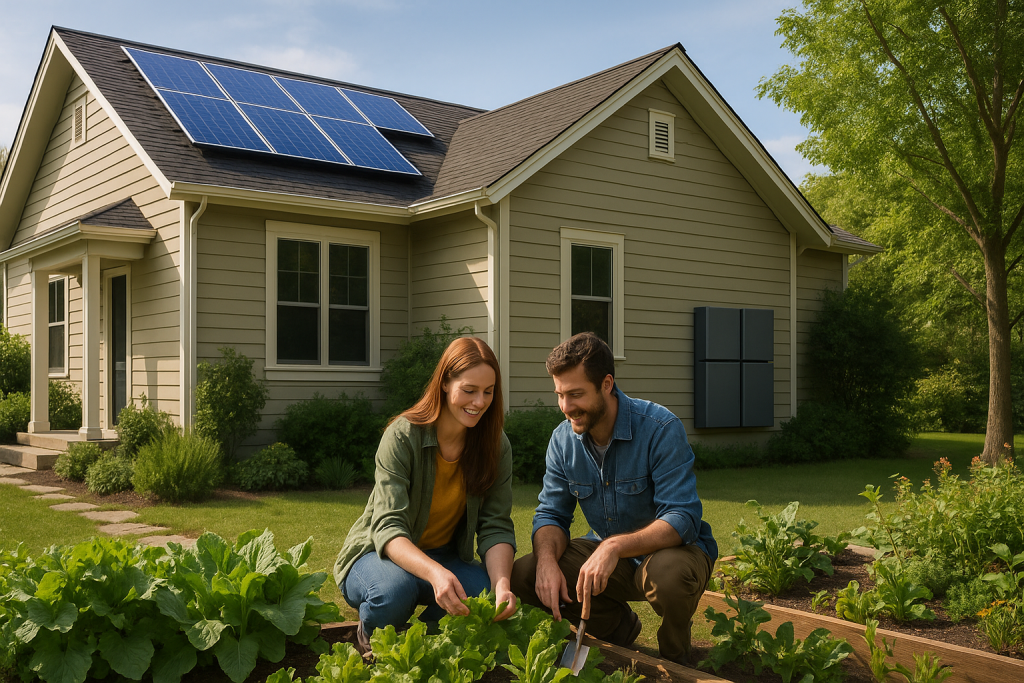
4. Smart Energy Storage
Unlike traditional solar setups, hybrids come with advanced batteries. These let you store excess energy for peak hours when electricity prices are highest.
5. Eco-Friendly Living With Flexibility
You’re lowering your carbon footprint while still keeping convenience. It’s like eating clean most days but treating yourself on weekends—you get balance without guilt.
6. Higher Property Value
Homes with hybrid systems are often more attractive to eco-conscious buyers. It’s a future-ready upgrade that sets your property apart.
7. Long-Term Cost Savings
Yes, the upfront investment is higher. But with reduced energy bills, tax incentives, and durable tech, hybrid solar pays off over the years.
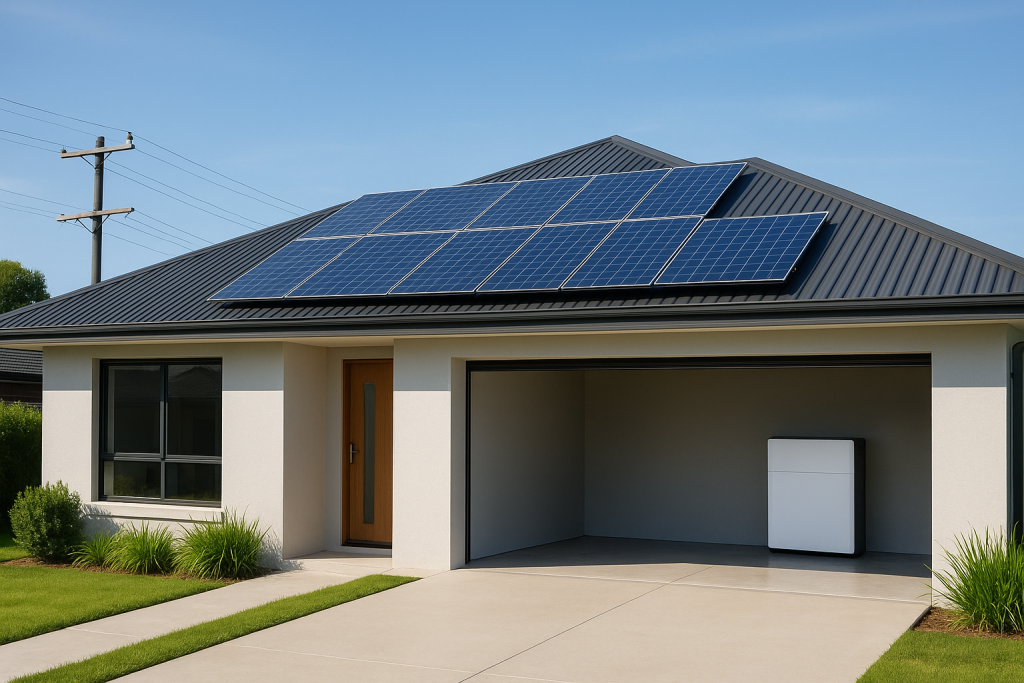
Amazon Product Recommendations
Here are some popular hybrid-ready solar products to consider:
1. EF ECOFLOW DELTA Max Solar Generator
- Features: 2016Wh capacity, expandable, fast charging
- Pros: Portable, reliable backup
- Cons: Premium price
- Best for: Emergencies, RVs, and backup power
2. Renogy 200W Solar Panel Kit with Battery Charger
- Features: High-efficiency monocrystalline panels, PWM controller
- Pros: Affordable starter kit
- Cons: Lower efficiency vs MPPT controllers
- Best for: Beginners or small off-grid setups
3. BLUETTI AC200P Solar Generator with Battery Pack
- Features: 2000Wh, 2000W output, multiple outlets
- Pros: Huge capacity, quiet
- Cons: Heavy
- Best for: Whole-home or large appliances
4. Jackery Explorer 1000 + SolarSaga Panels
- Features: Lightweight, 1002Wh capacity, clean design
- Pros: Great for camping and hybrid starter setups
- Cons: Smaller storage than larger units
- Best for: Portable hybrid convenience
5. ALLPOWERS Solar Generator 1500W with Panels
- Features: 1500Wh capacity, MPPT controller, compact design
- Pros: Mid-range price, versatile
- Cons: Less expandable than premium units
- Best for: Small homes and apartment users
Product Comparison Table
| Product | Capacity | Portability | Best Use Case |
| EF ECOFLOW DELTA Max | 2016Wh | Medium | Whole-house backup |
| Renogy Kit | 200W | High | Beginner setups |
| BLUETTI AC200P | 2000Wh | Low | Large appliances |
| Jackery Explorer 1000 | 1002Wh | High | Camping/portable |
| ALLPOWERS 1500W | 1500Wh | Medium | Small homes |
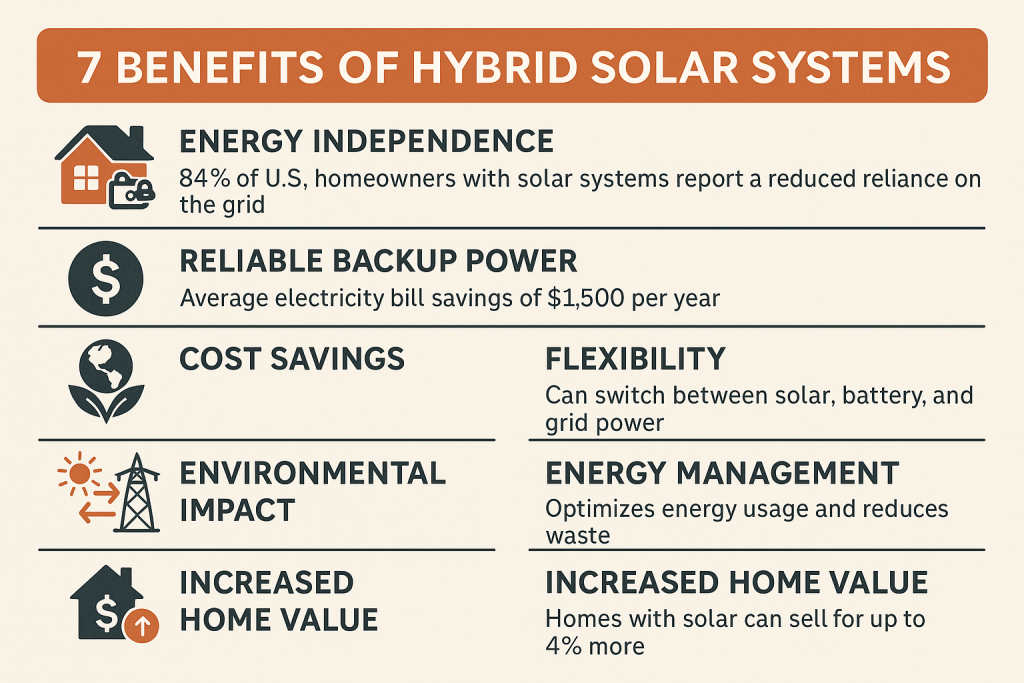
🧪 Research-Backed Insights
Experts consistently emphasize the reliability and cost-effectiveness of hybrid systems.
- According to the International Renewable Energy Agency, hybrid systems can cut household electricity costs by 30–50% when paired with efficient batteries (IRENA report on hybrid solar economics).
- A Harvard Energy Policy Review highlights how hybrid systems increase resilience during extreme weather events, making them more practical than standalone solar (Harvard Energy Review on resilience).
FAQs
What is a hybrid solar setup?
It works by blending solar panels with battery storage and a grid connection, offering a balanced approach to energy use.
How much would you usually spend on a hybrid solar setup?
Typically between $10,000–$25,000, depending on size and battery capacity.
Can hybrid systems work without batteries?
Yes, but batteries maximize efficiency by storing energy for nighttime use.
Do hybrid solar systems require maintenance?
Mostly minimal—clean panels, check batteries, and monitor inverter health.
Is choosing a hybrid solar system smarter than going fully off-grid?
For most households, yes. Off-grid works for remote living, but hybrids offer balance and reliability.
Helpful Resource
Want to know exactly how many panels you’ll need? Check out this guide on how many solar panels to power a house.
Conclusion
At the end of the day, hybrid solar systems give you energy independence and peace of mind. They cut bills, keep the lights on during blackouts, and future-proof your home. If you’ve been on the fence about going solar, hybrids might just be your sweet spot.

